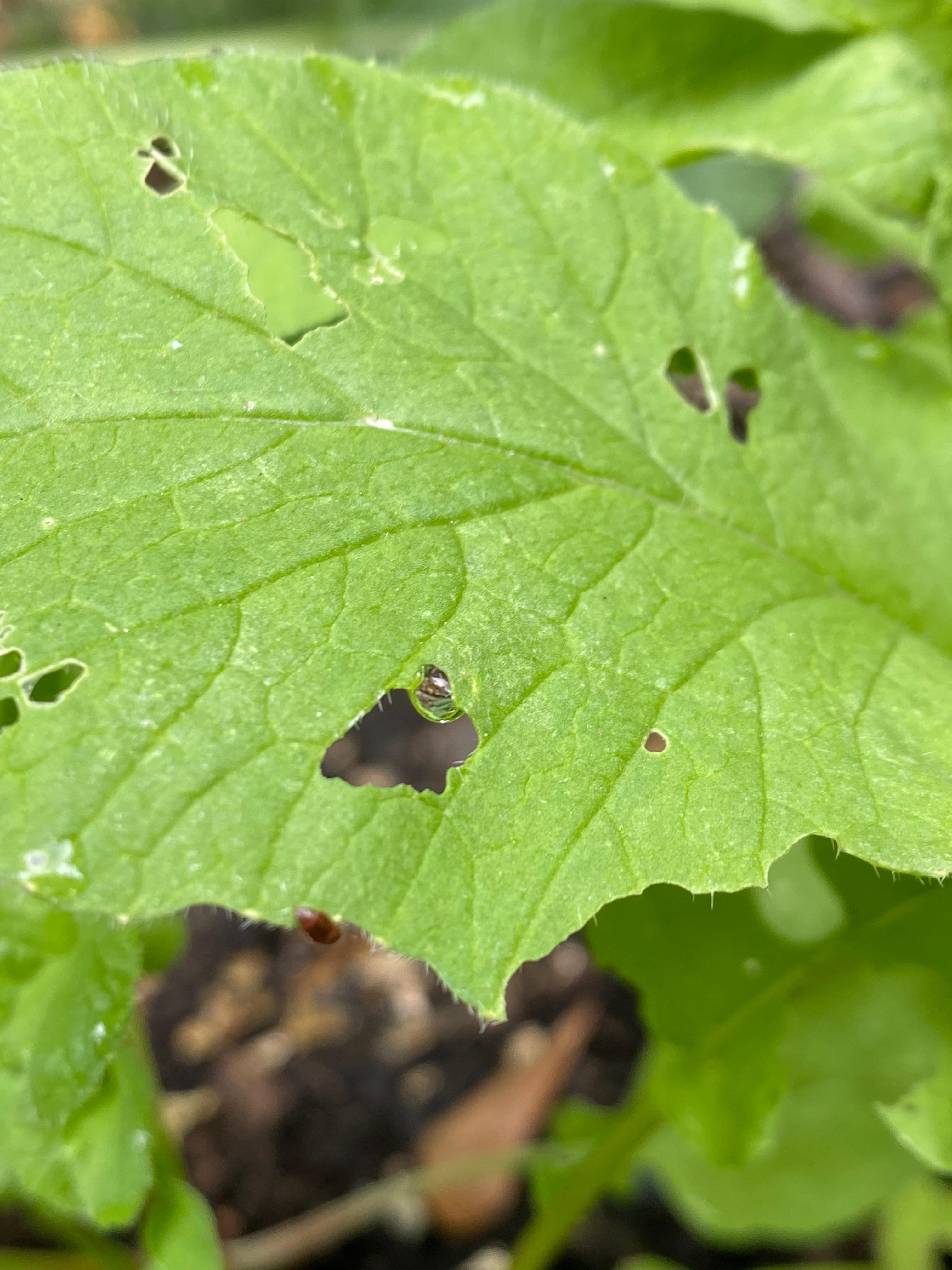
What is eating my radishes? Dining and Cooking
Credit: busycreatingmemories.com. One way to protect radishes is to grow them in a raised bed. This will help keep the roots from being damaged by pests or animals. Another way to protect radishes is to use row covers. This will help keep the leaves from being damaged by pests or animals.
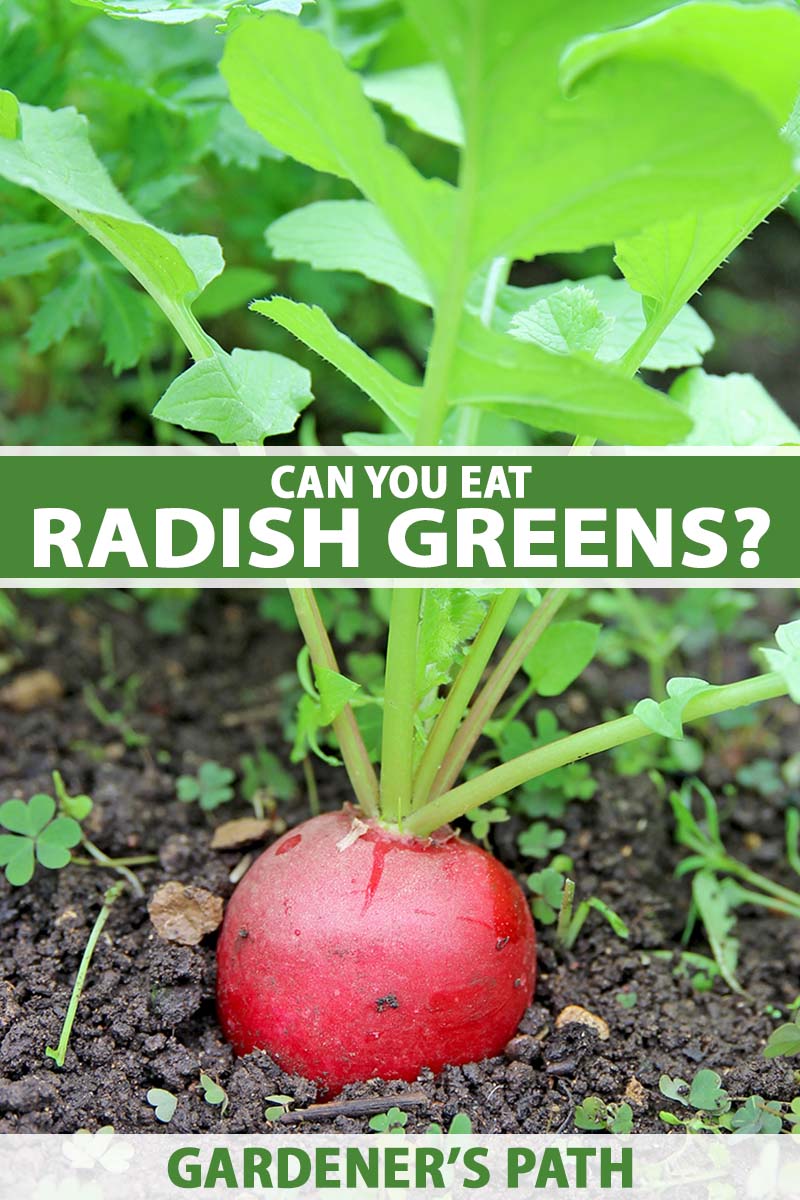
Can You Eat Radish Greens? Batang Tabon
Flea beetles. Annoying but we usually find the Radishes are fine to eat, it's usually just leaf damage. Hey! Thanks for confirming my suspicions, reassuring to know that the crop remains alright despite leaf damage. I've thought about putting micro mesh over them but there doesn't seem much point if it's only leaf damage and it's ugly and.
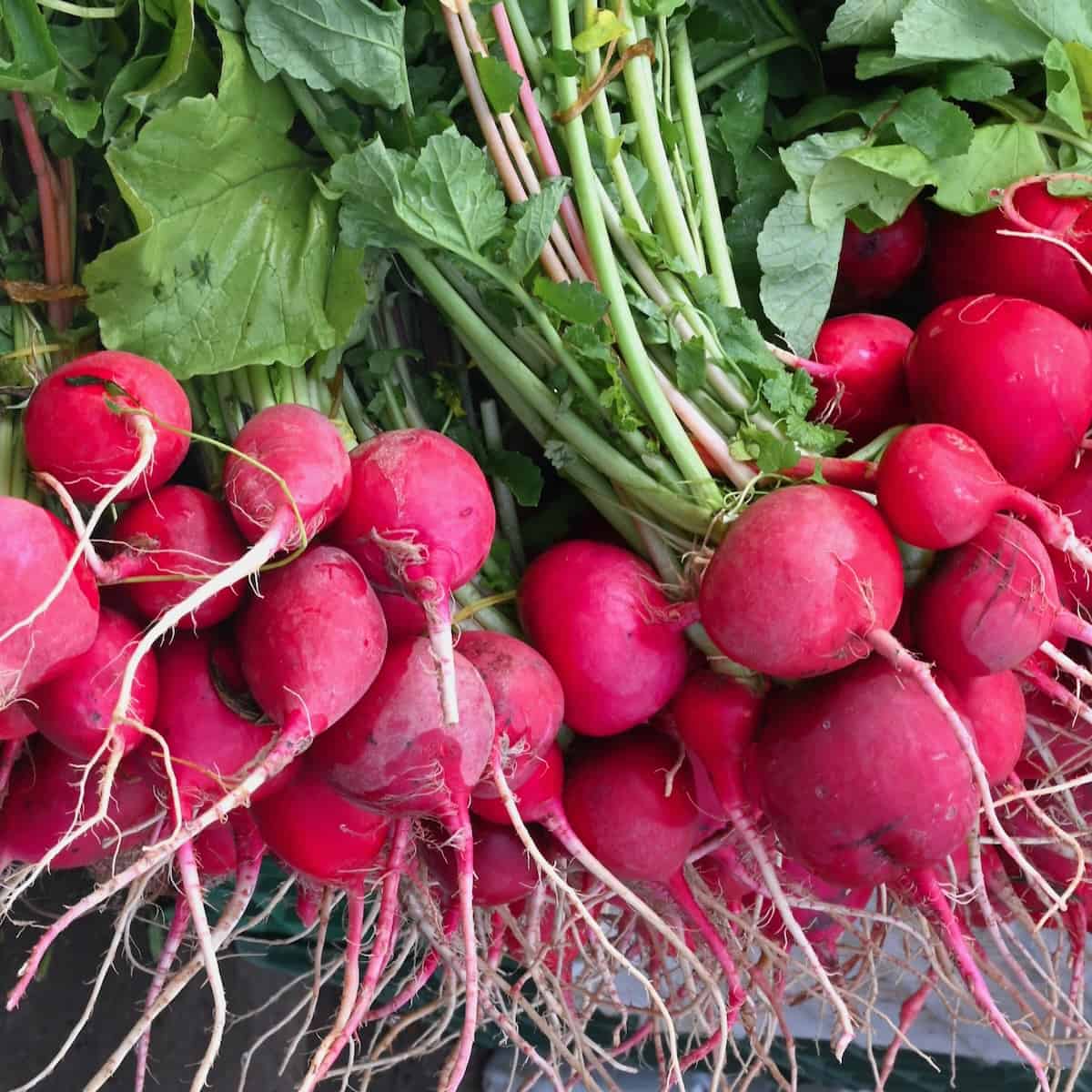
Radishes and What to Do with Them Alphafoodie
Slugs are known to eat a variety of plants, including radishes. While some gardeners may consider this a nuisance, slugs can actually be beneficial to the health of your radish plants. Slugs help to aerate the soil and also eat other pests that may damage your plants. A small slugs is eating a radish. [ 3]

Roasted Radishes Cooking LSL
6. They're protective against ulcers. Once again, radishes are veritable all-stars for the digestive system, even when juiced. "One study shows that radish juice may help prevent gastric.
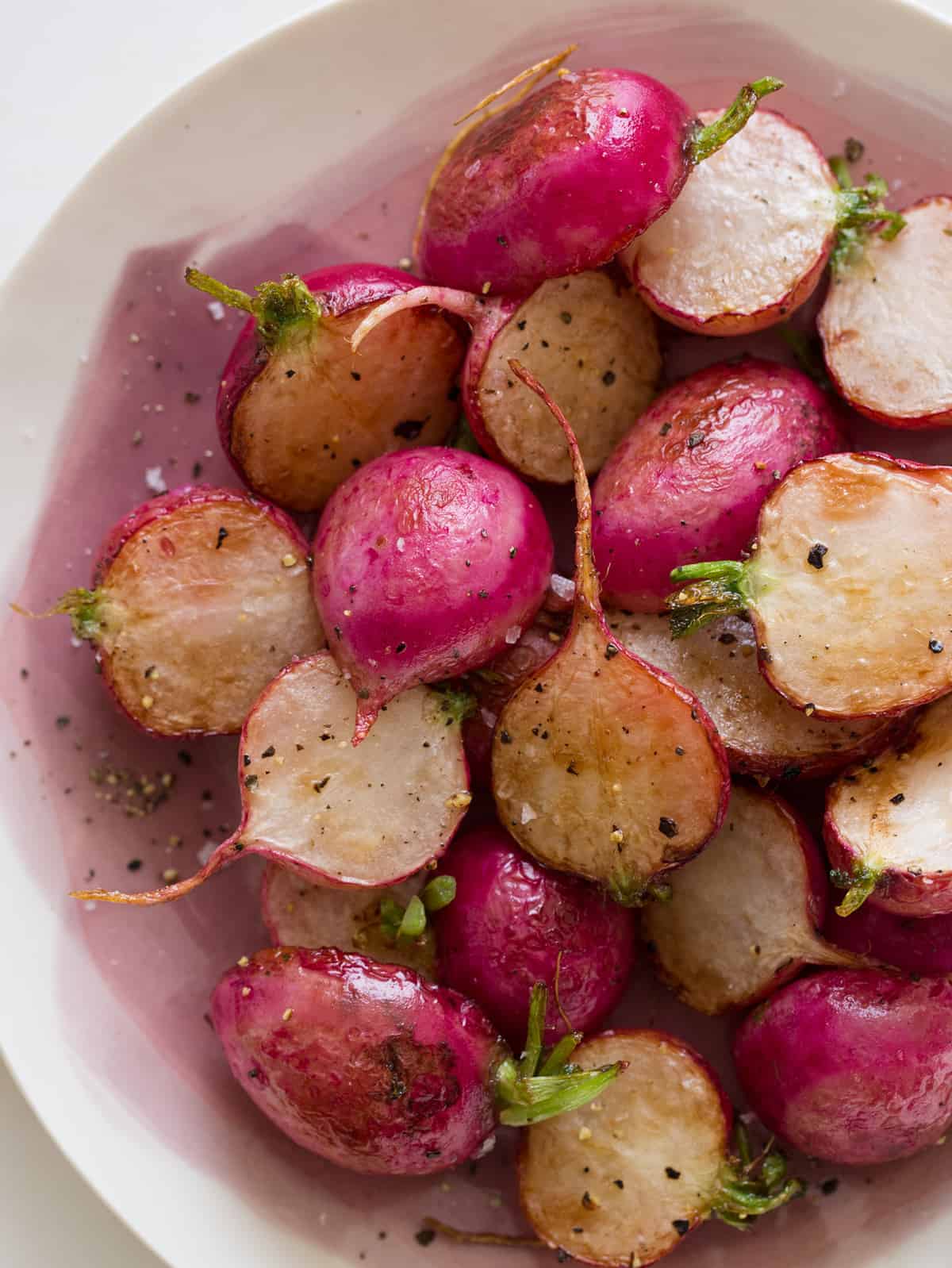
Roasted Radishes Side dish recipe Spoon For Bacon
The radish variety is sparkler, if that helps. After a quick check online, flea beetle seems possible however I've read up on how the larvae grow and it seems unlikely that they'd be in new compost since they seem to grow over winter and feed on early weeds. I'm not sure though. The radishes are in a bed next to some lettuce and some french.

เรียนรู้ 96+ radish ดฟพท wallpaper พลาดไม่ได้ daotaonec
Radishes are easy to grow and will tolerate most soil types, without needing a lot of attention. They are typically sown directly into the soil in rows, spaced about 10cm (4 in) along with up to 30cm (12 in) between the rows. Less than this and you are likely to end up with lots of leaf but small roots. As soon as soil temperatures exceed 7°C.
Whats eating my radishes and what organic pesticide can i use to
Avoid radishes that are soft, dull-colored, and have white or brown scars or black spots; if the radish tops are yellow, limp, or slimy, the radishes are old or have not been refrigerated properly. Remove radish greens before storing. Place in a plastic bag and store in the refrigerator. Radishes will keep for one week in the refrigerator.
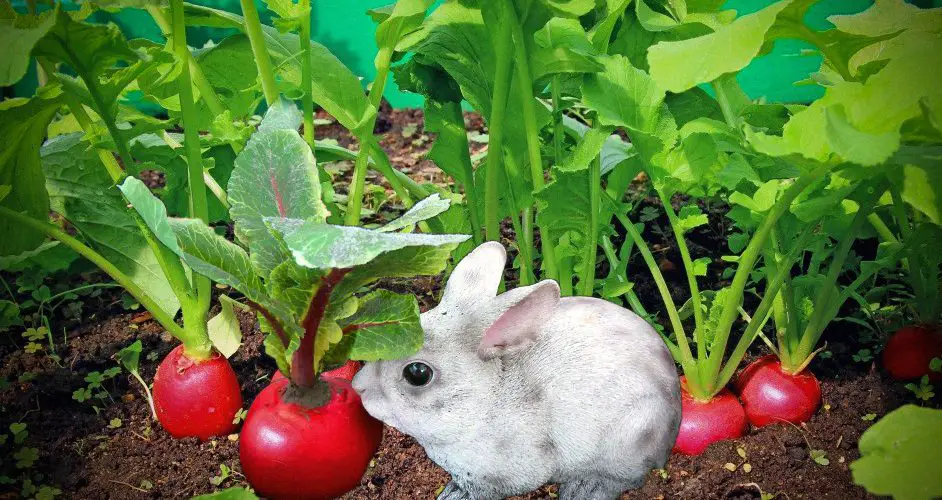
What Animals Like to Eat Radishes? Radish benefits
Radishes are good for you. They're generally safe to eat, but don't go overboard if you have thyroid problems. Excessive amounts may interfere with thyroid hormone production. A study on rats.

Benefits of eating radishes. Learn more about this super vegetable and
How to control it. Plant rust. Rust is quite common on radish plants. Hence, make sure to get some information on how to get rid of plant rust. Mold. Mold can also do great damage to radishes. Fortunately, there are easy ways how to control plant mold. Blight. Blight is another common issue when growing radishes.
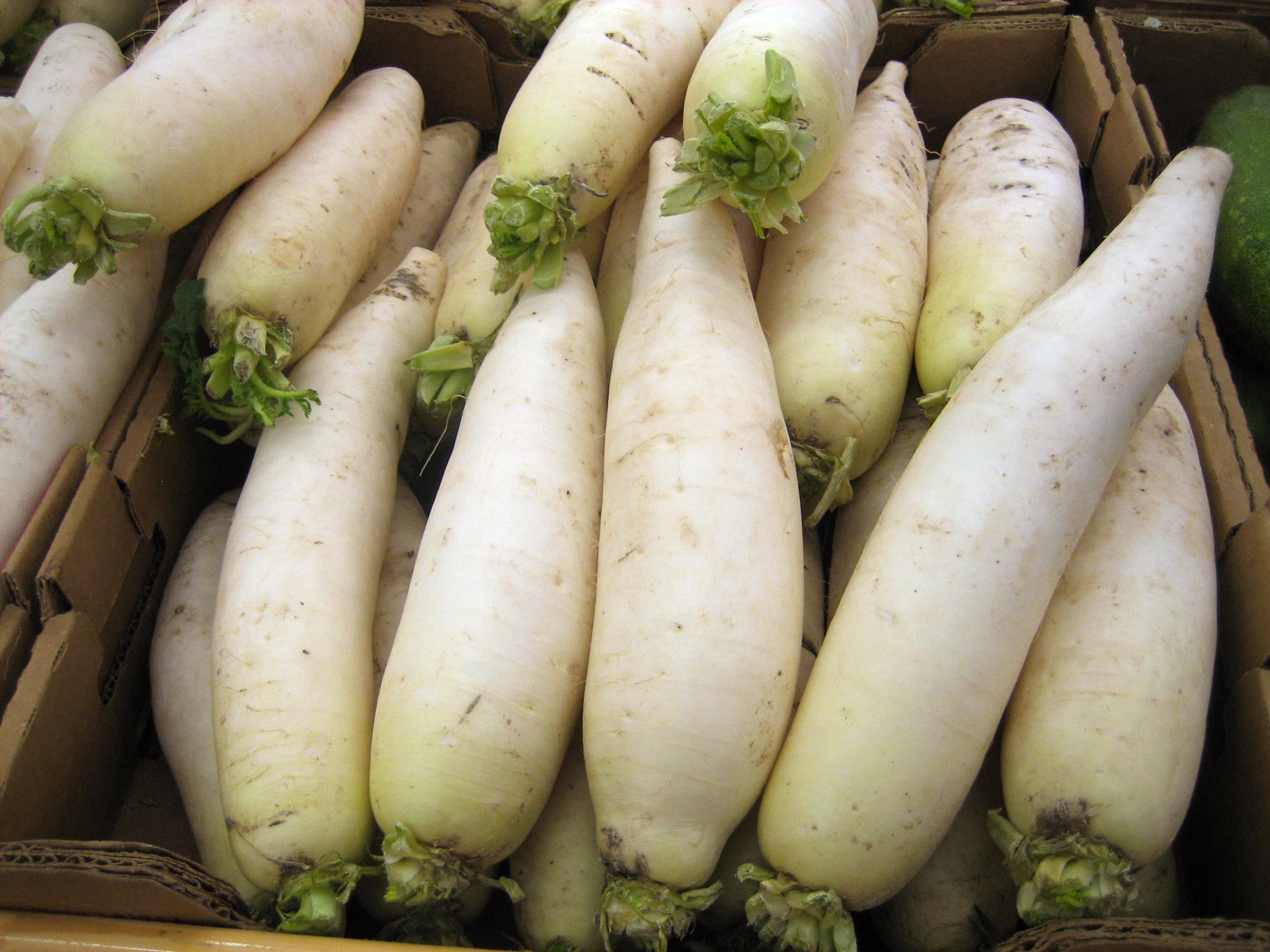
Radish Facts, Health Benefits, Nutritional Value and Pictures
Eating radish leaves is a common occurrence in many gardens. The small, delicate leaves are often the first casualty of hungry pests. While there are many different culprits that could be eating your radish leaves, there are a few common suspects. One of the most common culprits is the common garden caterpillar.

Everything You Need to Know About Radishes — Seed Savers Exchange Blog
Radishes are vulnerable to several types of insect pests, including cutworm, aphids, flea beetles and root maggots. All but the last damage the plants by eating the leaves, stems and sap. Root maggots tunnel into the radish roots, causing root rot and sometimes killing the plant.

Something eating my radishes — BBC Gardeners' World Magazine
Radishes are a popular vegetable to grow in home gardens, but one common issue that many gardeners face is finding their radish leaves being eaten by an unknown culprit. It can be frustrating to put in the time and effort to grow radishes, only to have something come along and destroy your hard work. So, what exactly is eating your radish leaves?

What’s Eating My Radishes? — BBC Gardeners' World Magazine
Radishes are strange little root vegetables that lend a nice bite to salads or a crunch to a taco or act as the perfect snack dipped in a bit of salted butter; they also happen to pack a punch of nutrients. Some of the benefits of eating radishes include reduced inflammation and lower cholesterol.One study even showed radish root extract has specific anti-cancer properties.

WillRadishes Deter Slugs? Thoroughly Nourished Life
Radish vs. beet. Both grow underground with some leaves sprouting above the earth. But they're quite different. The radish is part of the cabbage family, while the beet is a member of the amaranth.

Vegetable Sides, Vegetable Side Dishes, Vegetable Recipes, Vegetarian
Help, Something is Eating my Radishes! No one knows exactly where radishes originate from, but they can be found growing from the Mediterranean to the Caspian Sea. They thrive in cool, moist climates with the optimal temperature between 60 and 65 degrees F. (15-18 C.). They do well in almost any soil type but prefer light, sandy loam with a pH.

3 Signs That Your Radishes Are Ready to Be Harvested from the Garden
Radish root colors and shapes vary widely between varieties, and include black, white, purple, long and egg-shaped, as well as the traditional round, red salad radish. Although most people only eat radish roots, the leaves are also edible. Radishes are annual plants that produce seed and die at the end of the growing season.